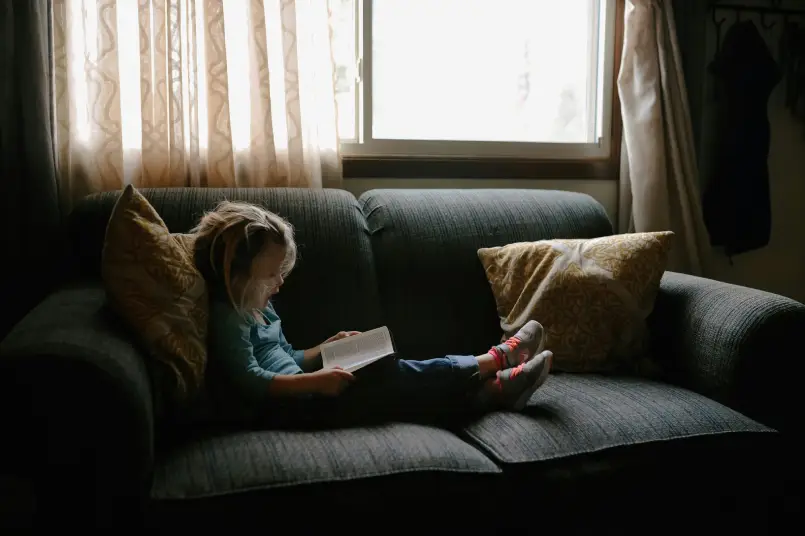
Children’s literature has always held a special place in the hearts of young readers, serving as a gateway to worlds filled with adventure, wonder, and endless possibilities. Among the many forms of literature, poetry stands out as a particularly potent medium for sparking creativity and imagination in young minds. In Portugal, a country known for its rich literary tradition, children’s poetry has a unique ability to inspire, educate, and entertain. This blog post will explore the magic of Portuguese poetry for kids, delving into how it unlocks imagination, nurtures creativity, and fosters a lifelong love for language and storytelling.
The Rich Tradition of Portuguese Poetry
Portugal boasts a long and storied history of poetic expression, with roots stretching back to medieval times. From the lyrical verses of Luís de Camões to the modernist explorations of Fernando Pessoa, Portuguese poetry has always been a medium through which deep emotions, cultural identity, and the human experience are vividly expressed. For children, Portuguese poetry offers a unique blend of rhythmic language, vivid imagery, and cultural richness that speaks directly to their innate sense of wonder and curiosity.
The Influence of Cultural Heritage
One of the most captivating aspects of Portuguese children’s poetry is how it draws upon the country’s cultural heritage. Portugal’s history, folklore, and traditions are often woven into the verses, providing young readers with a sense of connection to their roots. Whether it’s through references to traditional tales, the celebration of local festivals, or the depiction of the Portuguese landscape, these poems serve as a bridge between the past and the present, helping children to explore and understand their cultural identity.
For example, poems that incorporate elements of traditional Portuguese folklore—such as the story of “O Galo de Barcelos” (The Rooster of Barcelos) or the legend of “Pedro e Inês”—bring to life the myths and legends that have shaped the country’s cultural consciousness. By engaging with these stories through poetry, children are not only entertained but also educated about their heritage in a way that is both enjoyable and memorable.
The Role of Rhythm and Rhyme
Children are naturally drawn to rhythm and rhyme, making poetry an ideal literary form for young readers. The rhythmic patterns and melodic quality of Portuguese poetry captivate children’s attention, making the act of reading both fun and engaging. The musicality of the language helps to develop phonemic awareness, a critical skill in early literacy. Through repeated exposure to the sounds, patterns, and structures of poetry, children become more attuned to the nuances of language, which in turn enhances their reading and writing abilities.
Portuguese poets who write for children often employ playful rhythms and rhymes to create verses that are easy to remember and recite. This not only makes the poems enjoyable to read but also encourages children to participate in the oral tradition of storytelling, where poetry is shared aloud and passed down through generations.
Nurturing Creativity Through Imagery
One of the most powerful aspects of poetry is its ability to paint vivid pictures with words. Portuguese poetry for children is particularly adept at using imagery to evoke the natural world, fantastical creatures, and imaginative scenarios. These vivid descriptions stimulate the imagination, inviting children to envision and explore worlds beyond their own reality.
For instance, a poem might describe a moonlit night on a quiet beach, the waves gently lapping against the shore as a curious child searches for hidden treasures in the sand. Such imagery not only transports the reader to a specific time and place but also invites them to explore their own creative potential by imagining what treasures they might find, what stories the sea might tell, or what adventures await in the darkness.
Through these imaginative exercises, children learn to think creatively, to see the world through different lenses, and to appreciate the beauty of language as a tool for expressing ideas, emotions, and experiences. This creative engagement with poetry can have a lasting impact on a child’s cognitive development, fostering skills that are applicable not only in literature but in all areas of learning.
Fostering Emotional Intelligence
In addition to nurturing creativity, Portuguese poetry for children also plays a crucial role in fostering emotional intelligence. Poems often explore themes of friendship, love, loss, courage, and kindness, providing young readers with opportunities to reflect on their own emotions and experiences. Through the characters and situations depicted in poetry, children learn to empathize with others, to recognize and articulate their own feelings, and to navigate the complexities of human relationships.
For example, a poem might tell the story of a small bird who, despite being afraid, learns to fly and finds the courage to explore the world beyond its nest. Such a narrative can resonate with children who may be facing their own fears or uncertainties, offering them a sense of comfort and inspiration. By engaging with these emotional journeys, children develop a deeper understanding of themselves and others, which is essential for building strong, healthy relationships as they grow.
Encouraging a Love of Language
One of the most significant gifts that poetry can offer to young readers is a lifelong love of language. Portuguese poetry, with its rich vocabulary, playful use of words, and evocative imagery, encourages children to delight in the sounds and meanings of words. This appreciation for language is the foundation of strong literacy skills and can inspire a lifelong passion for reading and writing.
For young readers, the process of discovering new words, playing with language, and creating their own verses can be both empowering and exhilarating. Whether they are crafting simple rhymes or experimenting with more complex poetic forms, children learn to express themselves with clarity and creativity. This engagement with language not only supports their academic development but also enhances their ability to communicate effectively in all areas of life.
The Role of Educators and Parents
While Portuguese poetry for children offers immense benefits, its impact is significantly enhanced when supported by educators and parents. Teachers can incorporate poetry into the classroom by using poems to introduce new concepts, encourage critical thinking, and foster a love of reading. Poetry readings, recitations, and creative writing activities can be powerful tools for engaging students and helping them develop a deep appreciation for the art of language.
Parents, too, play a crucial role in nurturing a child’s love of poetry. Reading poems together, discussing the imagery and emotions they evoke, and encouraging children to create their own verses are simple yet effective ways to make poetry a part of everyday life. By creating an environment where poetry is valued and celebrated, parents can help their children develop the confidence to explore their creativity and express themselves through language.
Conclusion: The Lasting Impact of Poetry
Portuguese poetry for children is more than just a collection of verses; it is a gateway to imagination, creativity, and emotional growth. Through the rhythmic beauty of the language, the vividness of the imagery, and the richness of cultural heritage, poetry offers young readers a unique and powerful way to engage with the world around them. As they explore these poetic worlds, children learn to think creatively, to express themselves with confidence, and to develop a deep appreciation for the beauty of language.
The magic of Portuguese poetry lies in its ability to resonate with children on multiple levels—intellectually, emotionally, and creatively. By introducing young readers to this rich literary tradition, we not only nurture their minds but also plant the seeds for a lifelong love of literature. In a world where imagination and creativity are more important than ever, Portuguese poetry for children offers a timeless and invaluable gift: the ability to see the world not just as it is, but as it could be, through the eyes of a poet.

